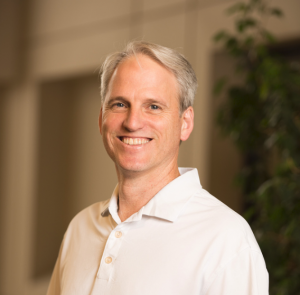Presented By: Exploring the Mind
UM Psychology Community Talk: Understanding Memory: How it Works and How to Improve it
Thad Polk, Arthur F Thurnau Professor Professor of Psychology Associate Chair, Faculty Development

Abstract: Human beings store away huge quantities of information in memory. We remember countless facts about the world (e.g., birds have wings, 2+2=4, there are 26 letters in the alphabet) as well specific information about our own lives (e.g., what we had for lunch, where we went for our last vacation, our first kiss). How does that work? How do we store information away into memory and then retrieve exactly the information we need minutes, days, or even years later? Conversely, why do we so often forget someone’s name or where we put our keys? And perhaps most importantly, is there anything we can do to improve our memory and keep it sharp? In this talk, we’ll dive into the psychological and neural mechanisms that underlie our amazing ability to remember. And we’ll also discuss ways to maximize our memory by applying techniques that have been scientifically demonstrated to improve retention.
Bio: Professor Thad A. Polk is an Arthur F. Thurnau Professor and Associate Chair in the Department of Psychology at the University of Michigan. His research combines functional imaging of the human brain with computational modeling and behavioral methods to investigate the neural architecture underlying cognition. Some of his major projects have investigated changes in neural representations as we age, contributions of nature versus nurture to neural organization and differences in the brains of smokers who quit compared with those who do not. Dr. Polk has taught well over 6,000 UM students over the past 20 years and has developed three neuroscience courses aimed at the general public for The Great Courses (The Addictive Brain, The Aging Brain, The Learning Brain). In 2012 Princeton Review included him on its list of the Best 300 Professors in the U.S.
Bio: Professor Thad A. Polk is an Arthur F. Thurnau Professor and Associate Chair in the Department of Psychology at the University of Michigan. His research combines functional imaging of the human brain with computational modeling and behavioral methods to investigate the neural architecture underlying cognition. Some of his major projects have investigated changes in neural representations as we age, contributions of nature versus nurture to neural organization and differences in the brains of smokers who quit compared with those who do not. Dr. Polk has taught well over 6,000 UM students over the past 20 years and has developed three neuroscience courses aimed at the general public for The Great Courses (The Addictive Brain, The Aging Brain, The Learning Brain). In 2012 Princeton Review included him on its list of the Best 300 Professors in the U.S.